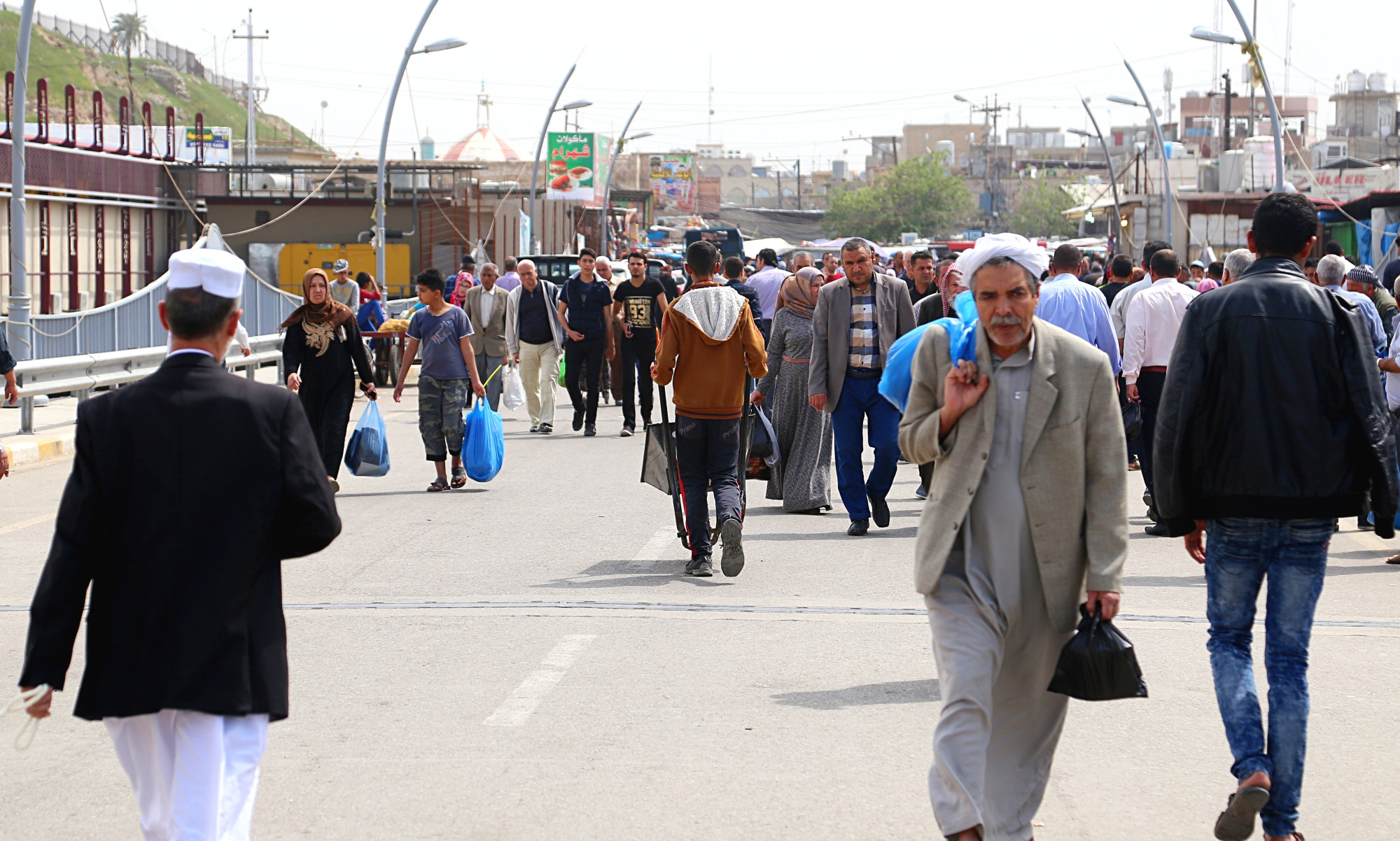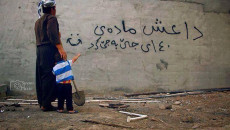Although the Kurdish parties have not crystalized a mutual strategy for negotiations to form the new Iraqi government, each of them has "conditions and red lines", which they consider as part of the battle to recover the rights of Kirkuk and other disputed territories.
Negotiations by political parties in Iraq began unofficially after the parliamentary elections that took place on October 10 of this year, which is witnessing heat discussions about forming a government, although the final results of the elections have not yet been ratified.
The Kurdish parties say that the situation in the disputed territories and article 140 of the constitution is a major part of their negotiations and discussions.
"The fate of these territories in the internal discussions of the Kurdistan Region in preparation for participation in the new Iraqi government, as well as those held with other Iraqi parties and parties, will be one of the main points," said Muhammad Khurshid, a member of the leadership council of the Kurdistan Democratic Party KDP, led by Masoud Barzani, and official of the party's branch in Kirkuk.
Khurshid confirmed the positions of the KDP which now holds 31 seats in the Iraqi parliament, are "fixed" regarding the fate of the disputed territories.
The KDP boycotted 2018 general elections in Kirkuk following October 16th 2017 events when Iraqi forced declared termination of the Islamic State in Iraq and levant ISIL and ousted Kurdish forces from Kirkuk and the disputed territories.
In October 2021 elections, KDP was back to Kirkuk and earned two of the 12 parliamentary seats of Kirkuk and 31 seats of the Iraqi parliament.
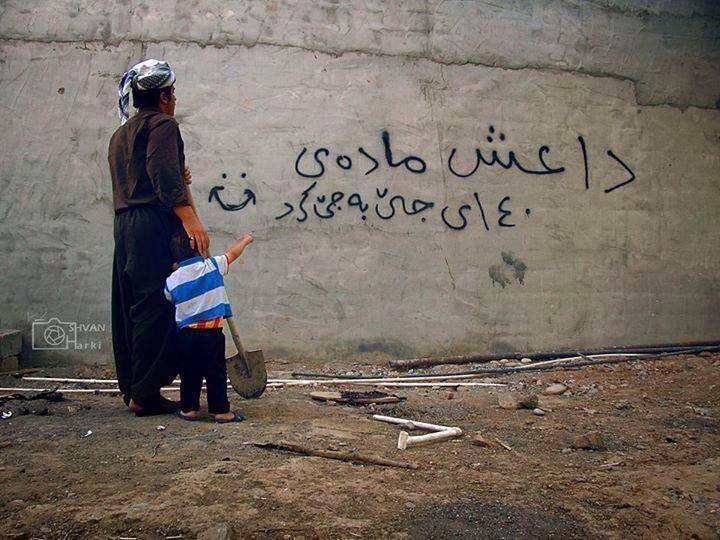
A Kurdish citizen reads a slogan written on one of the walls saying: (ISIL has implemented Article 140), in reference to the return of Kurdish forces to all disputed territories back in 2014.
"Our main condition for participating in the Iraqi government is to normalize the situation in those territories from a military point of view, and handover of military powers to the police. These two points are gradually materialized," Khurshid added.
Regarding other points, Khurshid said it includes "guaranteeing freedom for the Kurds living in those territories, especially in Kirkuk, and these are our conditions. The main points of the Kurdistan Democratic Party are red lines.”
The KDP which holds senior positions of the Iraqi Kurdistan Regional Government such as Iraqi Kurdistan Region President IKRP, PM of Kurdistan Regional Government KRG beside the federal finance ministry, has not returned to Kirkuk since the events of October 16, 2017, until the start of electoral campaigns for the 2021 legislative elections, given that the security and administrative authority has completely devolved to the federal government, and in return, the regional government withdrew after the relations between the two sides worsened due to the independence referendum in the Kurdistan Region and part of the disputed territories.
The northern oil-rich city of Kirkuk, located 238 kilometers north of Baghdad, is an ethnically mixed province for 1.7 million Kurds, Sunni and Shiite Arabs, and Turkmen. It has long been at the center of disputed territories between Baghdad and Erbil.
Currently, Iraqi army, local and federal police, Special Forces along with Shiite paramilitary of Popular Mobilization Forces PMF, undertake the security of Kirkuk province and the disputed territories.
In October 10th general elections, Kurdish political parties have won six seats, all earned by the Patriotic Unions of Kurdistan PUK, out of 12 for Kirkuk province in Baghdad alike 2018 general elections while the Arab political parties have mounted their seats from three to four yet the Turkmens lost a seat and earned only two.
On the other hand, PUK, which won 18 parliamentary seats and lost half of its seats in Kirkuk, is demanding the post of Kirkuk governor which it has occupied from 2005 up to 2017, while seeking the return of the displaced to other disputed territories.
Ghayath Surchi, deputy official of the Mosul Organizations Center of the PUK, told KirkukNow, “one of our conditions for participation in the next government is the implementation of Article 140, in addition to the return of the displaced. These points are in the priority of our work program and the agenda of negotiations."
This comes at a time when the Iraqi government headed by Mustafa Al-Kadhimi did not include the work of Article 140 of the Iraqi constitution in its agenda since it gained the confidence of Parliament in May 2020, however, both the Kurdistan Democratic Party and the Patriotic Union of Kurdistan participated in the government.
"The file of the return of the displaced from Shingal (Sinjar) and the Ninewa Plains and the reconstruction of those territories are among the red lines of the National Union, because the non-return of the displaced will lead to a demographic change in those territories," Surchi adds.
He believes that the time has come to resolve the problem of the disputed territories which is pending due to the events of 16 October 2017 and the volatile situation in the region.
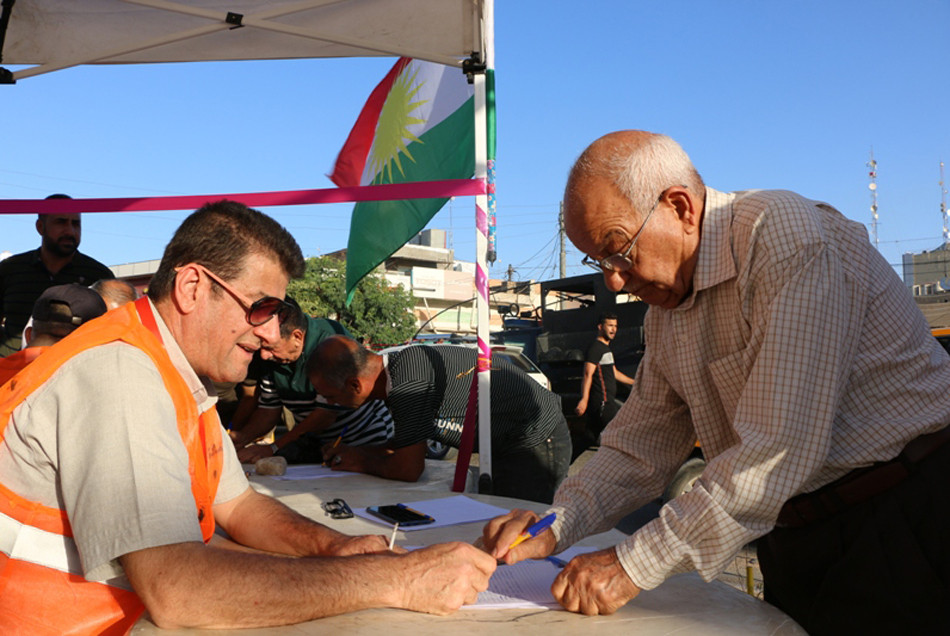
Khanaqin, July 15th 2019- A campaign to collect signatures to demand the implementation of Article 140. KirkukNow
According to the Iraqi constitution approved by the majority of voters in Iraq, the fate of the disputed territories must be resolved according to three stages, starting with normalization and then the census, to be followed by a local referendum on their ownership, according to Article 140 that set the end of 2007 as a deadline for implementing these stages.
This constitutional article is based on implementing the content of Article 58 of the Law of Administration for the State of Iraq for the Transitional Period, which was issued in March 2004, and consists of three paragraphs.
"We have repeatedly said that the implementation of Article 140 will be the first point in the negotiations with Baghdad, but unfortunately it was never the first point," said Ibrahim Khalil, a member of the leadership council of the Kurdistan Islamic Union KIU (Yakgrtw) and in charge of Kirkuk dossier.
Khalil says that the time has come to implement Article 140, not only to include it in the government's work program and to ignore it later, so this article is considered a priority that his party insists on.
He explained that the Kurdish people's strength lies in the unity of discourse and that they support peaceful coexistence from Sinjar to Khanaqin, while ensuring the rights of all components.
The Constitutional Committee was formed to implement Article 140 in 2006. The work of that committee revolves around returning and compensating families who were deported from their homes or were afflicted during the period of the previous regime’s rule (1968-2003).
The committee, whose head and members were from the various components of Iraq, opened its own offices in several provinces, and during the past years its budget was cut, and in 2021 it allocated less than 13 billion Iraqi Dinars (9 million USD) to run the work of this article at a time when it needed 60 billion Dinars.
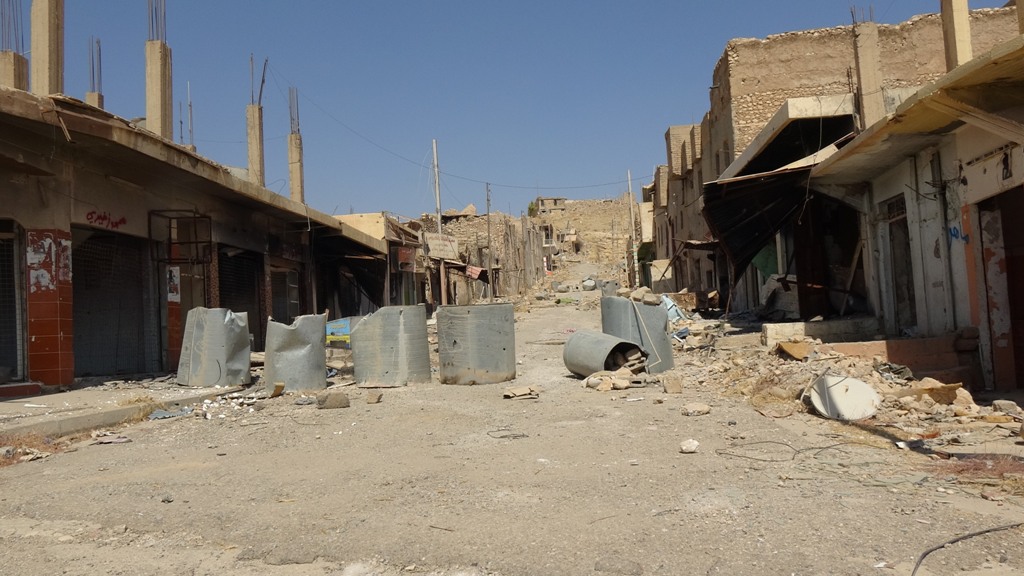
Ninewa, 2018- the devastation caused by the war against ISIL in Shingal district. KirkukNow
The official of the Kirkuk branch of the Kurdistan Democratic Party says that the committee for implementing Article 140 and the head of the committee “were part of the obstacles to implementing the article,” without giving an explanation.
The Federal Supreme Court stressed in 2019 the activation of Article 140 of the Constitution until all procedures related to that article are implemented.
Muhammad Khorshid believes that this article is not implemented by a parliamentary committee, and that "after the normalization of the situation in Kirkuk, the inauguration of a Kurdish governor will be the first step, and then the implementation of the other provisions of Article 140."
"For Shingal, the KDP requires the implementation of the agreement concluded between the government of Kurdistan Region and the Iraqi Government.”
In October 2020, the Iraqi federal government and the Kurdistan Regional Government concluded the Sinjar Agreement to reorganize the administrative, security and service file in the war-torn district, but some of the terms of the agreement have not been implemented as they are up today.
KIU leader believes the issue of the disputed territories for the Kurds is in two stages, the first is to obtain constitutional rights and the second is to protect gains. "We have not been able to recover our constitutional rights yet, and we are still in the first stage for 18 years, we have not been able to preserve what we won because of our dispersal, and the responsibility for that lies in the first place with the KDP and the PUK because they did not work as one team in the disputed territories.”
Disputed territories, a constitutional term for the political and administrative status of Kirkuk province and other parts of Diyala, Ninewa and Salahaddin provinces that have undergone demographic and administrative changes as a result of the policies pursued by the Iraqi government from 1968 to 2003.

